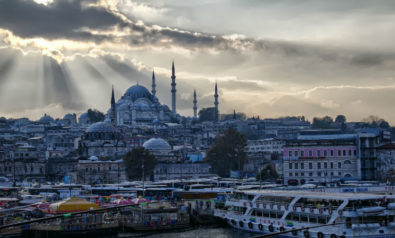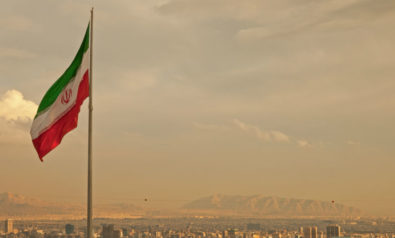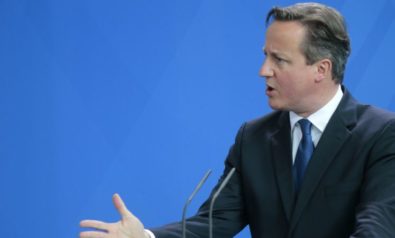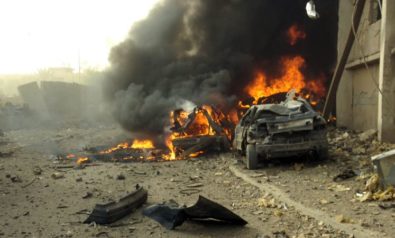Indigenous culture, especially music, is the way to reach young Pakistanis and counter extremism.
On June 22, the global campaign to counter violent extremism (CVE) lost one of its most powerful messengers when gunmen linked to the Pakistani Taliban murdered the beloved qawwali singer Amjad Sabri in Karachi.
Not that Sabri was working with the US State Department, the Pentagon or any foreign government, but the ecstatic celebration of divine love that is qawwali music is, to quote leading Pakistani playwright Shahid Nadeem, “the most powerful and popular vehicle for spiritual and cultural uplift of the masses. It bypasses indoctrination, bigotry, sectarianism, and liberates, emancipates, empowers.”
Sabri’s case is still under investigation given the political complexity of a metropolis like Karachi, but high profile adherents of Sufi Islam remain under threat in Pakistan.
Music as a Challenge
Qawwali music and the Sufi tradition to which it belongs represent the antithesis of the Wahhabi-inspired fundamentalism of militant groups such the Taliban, the Islamic State or Boko Haram, which view such practices as heresy. From North Africa to South Asia, Sufi ideas—of love for humans, communal harmony and tolerance—are part of lived faith and culture. Violent extremists within Muslim societies find this peaceful, inclusive approach to be a challenge to the dogma of fear they impose, and have been attempting to erase it.
Over the past decade, dozens of Sufi shrines have been attacked in Pakistan. The worst hit was in the northwestern province of Khyber Pakhtunkhwa, where missiles were used to destroy mausoleums of Sufi poets such as Rehman Baba. With the rise of the Pakistani Taliban from 2006 onward, many shrines have been attacked. In 2010, the oldest shrine of Ali Usman Hajwery in Lahore was bombed resulting in dozens of deaths.
Other than perpetuating terror, such attacks directly affect the faith practices of millions who use these shrines as comforting spaces, sometimes even as soup kitchens for there is a tradition of free food as a charitable act.
Tragically, the Sufi tradition within the history of the Indian subcontinent—embodied in political figures such as the 17th century Mughal Prince Dara Shikoh or in folk poets such as Bulleh Shah—was expunged from Pakistan’s history by General Zia al-Haq who reinforced his authoritarianism with a fundamentalist interpretation of Islam.
Sabri belonged to a wildly popular line of musicians whose works were globally recognized. Rock stars such as Peter Townsend of The Who especially admired Nusrat Fateh Ali Khan, another torchbearer of the qawwali tradition. Peter Gabriel made qawwali widely accessible by recording Khan and the Sabri brothers, a group comprising Amjad Sabri’s father and uncle. Such has been the magic of qawwali that it has informed classical, Bollywood and even the rock genre in South Asia. For instance, Salman Ahmed of the Pakistani band Junoon translated the qawwali genre into rock, including his own version of Nusrat Fateh Ali Khan’s classic Allah Hu.
Qawwali music has rock ‘n’ roll fans, but its real soulmate is gospel music. Venues such as the Fes Festival of sacred music have long paired gospel and qawwali singers for soul-stirring improvisations. In 2012, American gospel singers were the stand out hit of Cairo’s annual Sufi festival, staying up all night long to jam with their Pakistani qawwali singers. At a time of virulent anti-Americanism in Egypt, the Sufi festival audience, including fully covered guests from Saudi Arabia, swayed to the sounds of the gospel hit, When I Think About Jesus, I Feel Like Dancing. Just as with the hypnotic pull of qawwali music, no one was thinking about whether dancing or music were “allowed” or not—everyone was swept away in the unifying feeling of shared spirituality.
For fighting extremism in South Asia, regional music is an essential tool. Sadly, with the death of Amjad Sabri, a powerful messenger of peace and tolerance has been lost.
That is what extremists find threatening in Pakistan and in countries such as Mali where music is the lifeblood of the country. When al-Qaeda-linked extremists invaded Timbuktu, they did the unthinkable: They banned music, prompting Tuareg singer Fadimata Walet Oumar to declare that they would have to “kill her first” before she would stop singing. As in Pakistan, the extremist invaders in Mali destroyed shrines of the venerated scholars and saints of Timbuktu, a center of Islamic learning in the Renaissance.
Since 2014, Pakistan’s military offensive against jihadists has improved the overall security situation, but the ideological battle is harder and may take decades to win. In part, this is linked to the Pakistani government’s continued support for Taliban ideology in neighboring Afghanistan. More worryingly, the majority of 40,000 religious seminaries—which have mushroomed since the mujahedeen of the 1980s—are affiliated with the Deobandi sect of South Asian Islam. The Deobandi school also rejects Sufi practices and is closer to Saudi Wahhabism.
It is no surprise that countering violent extremism involves more than military operations. Culture is an effective tool in promoting an inclusive and tolerant society. But not American culture. The Islamic tradition, especially some of the Sufi discourses and practices, are powerful antidotes to the exclusivist vision of power-seeking clerics and militias that argue for Muslim supremacy and consider non-Muslims as the “other.”
Countering Violent Extremism
Rather than trying to develop effective counter-narratives to extremism, the US should recognize, support and leverage authentic counter-narratives such as Sufi music and poetry. Could the US government have prevented Amjad Sabri’s murder? Probably not, but it can certainly learn from it.
It is time for US policymakers to recognize what extremists have long understood: Culture anchors identity, strengthens societies and can promote tolerance and inclusion. If extremists destroy culture—living and historic—in order to dominate, shouldn’t the US and its allies recognize the power of culture to provide resilience, vision and unity in countering violent extremism?
Current US strategy does not include culture as a tool in its countering violent extremism (CVE) toolbox. Occasional successes such as the Burka Avenger comic series, supported by the US Embassy in Pakistan, leveraged the power of popular culture to promote positive social change, but this type of approach has not been systematically integrated. Indeed, to do so would require a substantive change not only of mindset, but also within the relevant institutions.
The Bureau of Education and Cultural Affairs is hamstrung with a Cold War-era mandate of sending American cultural emissaries abroad, and it is poorly equipped to leverage indigenous cultural leaders. Since the integration of the United States Information Agency into the State Department in 1999, the number of regional cultural experts has dwindled.
But these problems are manageable with a more flexible approach to CVE that acknowledges the power of local voices and the potential of the US public and private sectors to leverage them—a point made in a congressional hearing on June 23 dubbed “Countering the Virtual Caliphate.”
The private sector has already recognized the value of this approach for reaching foreign publics. Ask any young Pakistani about his or her favorite music, and chances are the answer will be Coke Studio. Now entering its ninth season, this hugely popular TV show features Pakistani folk singers such as qawwali masters blending their presentation with popstars, creating distinctly hybrid Pakistani music with influences from Central and South Asia. All “brought to you” by Coca Cola. Amjad Sabri will be making his first—and sadly his last—Coke Studio appearance (already recorded) this season.
It’s time for the US government to recognize what the private sector long has understood: Indigenous culture, especially music, is the way to reach the Pakistani public. For fighting extremism in South Asia, regional music is an essential tool. Sadly, with the death of Amjad Sabri, a powerful messenger of peace and tolerance has been lost.
The views expressed in this article are the author’s own and do not necessarily reflect Fair Observer’s editorial policy.
Photo Credit: Saad Sarfraz Sheikh
 We bring you perspectives from around the world. Help us to inform and educate. Your donation is tax-deductible. Join over 400 people to become a donor or you could choose to be a sponsor.
We bring you perspectives from around the world. Help us to inform and educate. Your donation is tax-deductible. Join over 400 people to become a donor or you could choose to be a sponsor.
Support Fair Observer
We rely on your support for our independence, diversity and quality.
For more than 10 years, Fair Observer has been free, fair and independent. No billionaire owns us, no advertisers control us. We are a reader-supported nonprofit. Unlike many other publications, we keep our content free for readers regardless of where they live or whether they can afford to pay. We have no paywalls and no ads.
In the post-truth era of fake news, echo chambers and filter bubbles, we publish a plurality of perspectives from around the world. Anyone can publish with us, but everyone goes through a rigorous editorial process. So, you get fact-checked, well-reasoned content instead of noise.
We publish 2,500+ voices from 90+ countries. We also conduct education and training programs
on subjects ranging from digital media and journalism to writing and critical thinking. This
doesn’t come cheap. Servers, editors, trainers and web developers cost
money.
Please consider supporting us on a regular basis as a recurring donor or a
sustaining member.
Will you support FO’s journalism?
We rely on your support for our independence, diversity and quality.


















